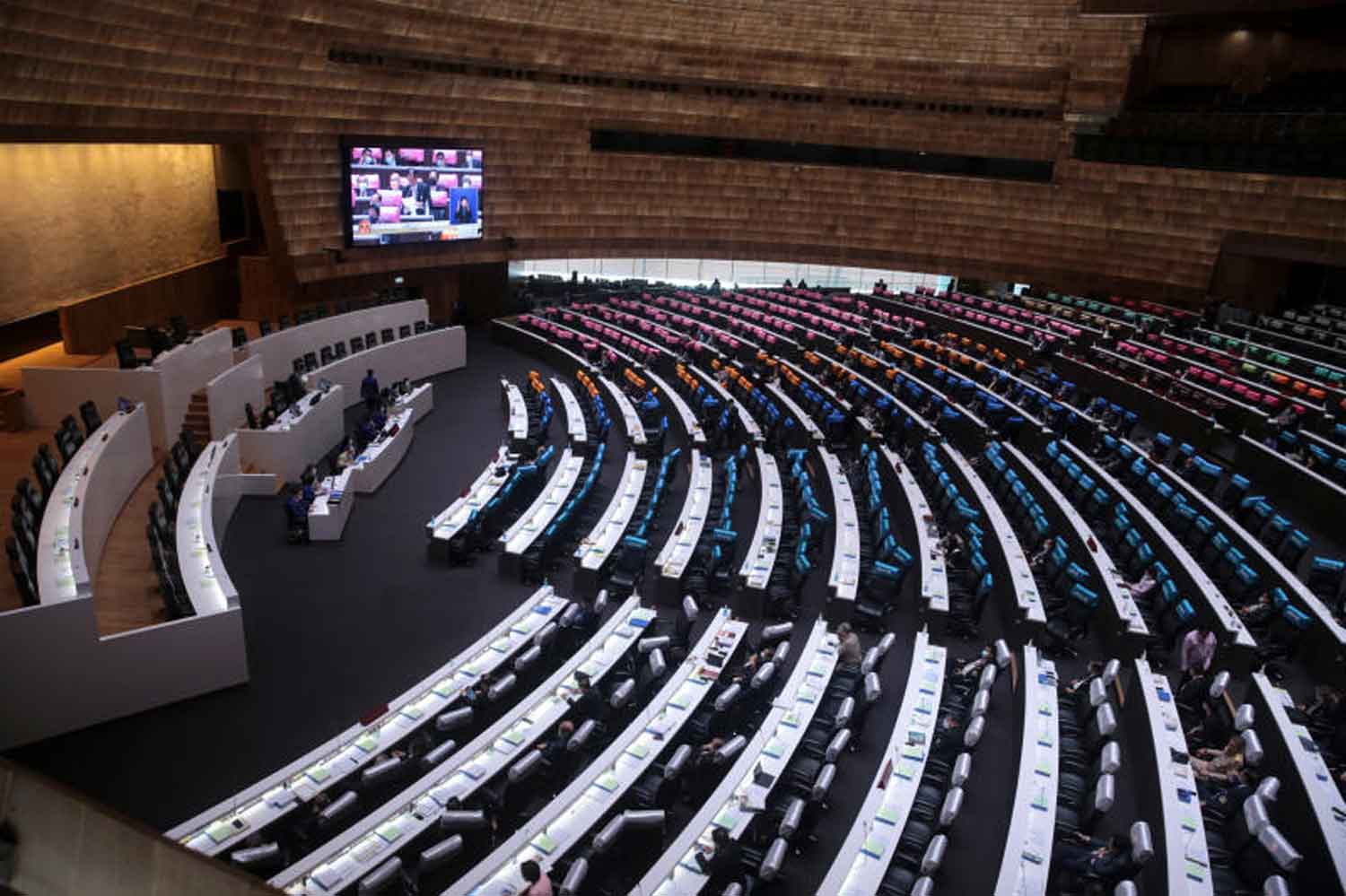
Senators have voted in favour of forming a panel to study a motion to organise a referendum that could pave the way for a rewrite of the entire constitution.
The vote -- 151 for, 26 against, and 15 abstentions -- was criticised by some senators during its debate as a tactic to stall the passing of the controversial motion, which was proposed by the House of Representatives. The motion was treated as an urgent issue by the Senate.
The Senate is proceeding as dictated by the Referendum Act after the House on Nov 3 voted for an opposition-sponsored motion, which seeks a referendum to be held on the drafting of a new constitution.
It calls on the government to hold a referendum on whether a new constitution should be drawn up by a charter drafting assembly made up of elected representatives, to replace the current charter. It also suggests that the referendum be arranged on the same day as the next general election, which has tentatively been set for May 7 by the Election Commission (EC).
The Senate was expected to decide whether or not to second the motion on Monday. Instead, the majority voted to refer the motion for a thorough study by an ad hoc panel yet to be established.
Before the vote, the motion had split the opinions of senators.
One side threw their support behind the motion, reasoning that it complies with the process of introducing sweeping charter changes, as stipulated by the Constitutional Court.
Those who oppose the motion argued the sponsors were politically driven to use the referendum as a political issue in their campaigns to gain an advantage in the next polls.
Sen Kittisak Rattanawaraha spoke of his support for charter amendments, although he voiced disagreement with organising the referendum on the same day at the general election as this could confuse voters.
To keep political parties from capitalising on the charter issue, the referendum should be held separately, preferably after the polls, he said.
The business of drafting a new constitution looks to be time-consuming, he added, estimating the process could take up to two years to complete.
Sen Chalermchai Fuengkhon voiced his opposition to rewriting the charter in its entirety and setting up a charter assembly.
Instead of electing a charter assembly, which is costly, the Centre for Democratic Development -- which supports the EC in organising elections -- should be enlisted to assist in redrafting some of the contents in the current constitution, he said.